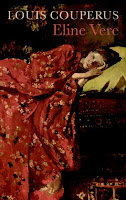Tally ho, yoicks, etc, and welcome to the brilliantly exciting Day Two of my Books of the Year. It's been rather a good year for children's and young adult books; I also thought a special mention (though I am not, as they say, "well-up" on the genre) should go to one science fiction novel (although I'm sure that the author would mutter about such a classification, but there you go.)
Finch by Jeff Vandermeer, a hard-boiled noir full of betrayals and double crossings, is set on a planet taken over by mushrooms (yes, mushrooms), known as the Grey Caps. It's rich and strange, and whilst I must confess I wasn't always entirely sure who was double crossing whom, it offers an enthralling window into an alternative universe.
Right, now down to children's books.
1. Life: An Exploded Diagram by Mal Peet
This is an exceptional young adult novel, warm and poignant and entirely absorbing. As well as being a finely written, emotionally mature piece of work, it's also an intelligent enquiry into cause and consequence, a study of class and its hidebound nature after the war (Clem is a labourer's son whose father goes up in the world to work for the local squire; Clem falls in love, naturally, with the squire's daughter.) The Cuban Missile crisis looms large in Clem's imagination, and it also works as a metaphor, layered through the entire text. A sterling book from a well-established author, this should almost certainly win prizes.
2. A Monster Calls by Patrick Ness
A children's book that might have been crafted straight out of a nightmare and made solid: bursting with terrifying images and rooted in the deepest folktalkes, this warped fable also follows an involving emotional arc, and sits as a nice counterpoint to Ness's trilogy, Chaos Walking.
 |
| An Eck. About to eat something. |
3. There is no Dog by Meg Rosoff
What if God was a sex-obsessed teenager called Bob? Well that would explain why the world is in such a mess, wouldn't it? It certainly makes sense; and Rosoff's quirky, intelligent and very funny tale explores the idea with verve and imagination. Oh, and it also contains the world's sweetest creature - the Eck. You'll want one, I promise. It eats everything in sight - and it's the last one in the universe.
4. David by Mary Hoffman
A marble-veined, beautifully crafted novel which sees a gorgeous young man enter into Florence to seek his fortune. His looks earn him the attention of both men and women; he also becomes embroiled in dangerous game of espionage - whilst, of course, being the model for Michaelangelo's David. Absorbing, thrilling, and full of historical sumptuousness.
5. Naked by Kevin Brooks
A very powerful, thoroughly-imagined fiction, concerning the privileged life of the daughter of an actress; she forms a band with the best looking guy in school, but he turns out to have his own problems; meanwhile she falls for the new Irish bass player, Billy the Kid - but he's tangled up in some dangerous political machinations of his own. Superlative.
6. The Devil Walks by Anne Fine
Suspenseful, scary and absorbing, Fine's novel pushes through pastiche of the late Victorian / early Edwardian ghost story and emerges on the other side (much like Chris Priestley's Uncle Montague series.) An imprisoned, vulnerable boy; a hidden house; a Satanic doll; all these elements combine to make an unmissable tale.
7. One Dog and His Boy by Eva Ibbotson
A true delight, this was Ibbotson's last book before she died this year. It follows a young boy's quest for friendship, which he finds, in bagfulls. It's sweet and funny and charming, and the Pekinese alone is worth it - descended from dogs who guarded the Imperial Palace, he secretly nurses his fiery soul, waiting for someone to notice it.
8. The Case of the Deadly Desperadoes by Caroline Lawrence
An almost perfect children's book, this lovely tale sees a boy with Asperger's syndrome in nineteenth century America, on the run after his family is slaughtered; he becomes a detective and foils some nasty villains. It's witty and moving.
9. Sky Hawk by Gill Lewis
This debut novel augurs well for the future - Lewis writes with a keen, poetical eye, and her story is alive to the wonders of nature, and manages to be sentimental without being crass. One to watch.
10. The Power of Three by Diana Wynne Jones, Flight 714 by Hergé, and The Ropemaker by Peter Dickinson
Three older books I've read (or reread) this year that deserve a mention. Diana Wynne Jones also died this year - her children's books are inimitable. I came to them late - very late, actually, as I was still at university when I read The Dark Lord of Derkholm, and Chrestomanci, a book about a boy wizard written years before Harry Potter. I read The Power of Three this year, which concerns three different tribes who hate and fear each other - one of them, us humans, are known as giants; but when two little "fairy" children have to work with the giants to save their community, they learn that perhaps differences aren't necessarily to be scared of. It's a charming, weird book.
The same kind of weirdness, but magnified, can be found in Peter Dickinson's The Ropemaker; I'd never heard of him, but a chance remark by Marion Lloyd as we discussed writing children's books put me on to it: it should be read immediately by anyone interested in children's books. It inhabits its own world so thoroughly that it's almost impossible to put down; and it has the best grumpy horse in it I've ever come across. And, last but not least, after a wedding conversation I went back to Hergé, and found in Flight 714 all the thrills and humour that kept me enthralled as a child.
























